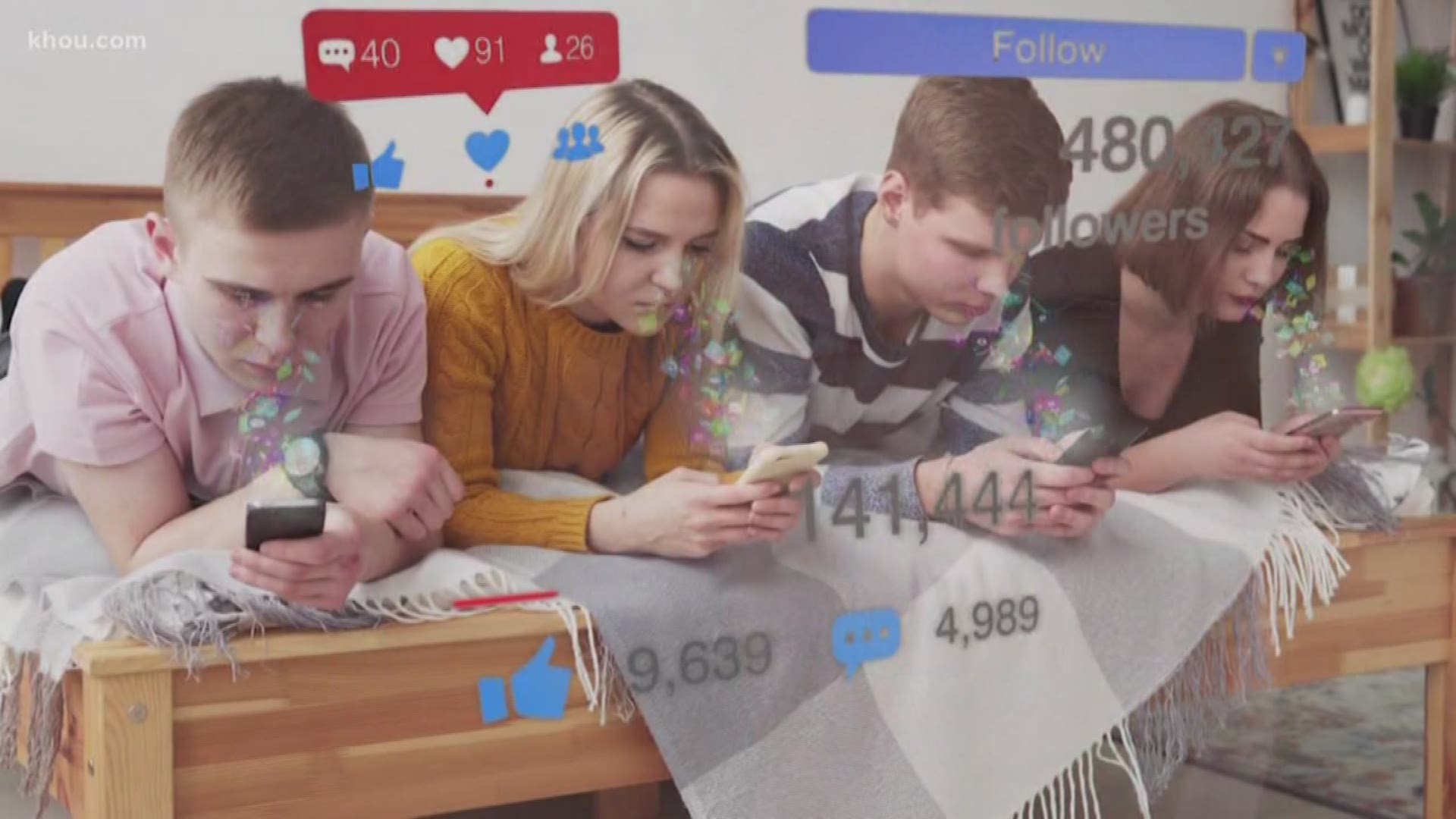HOUSTON — With more than 4 billion users, the internet has a larger modern footprint than both the Christian and Muslim religions combined. It holds a lot of influence that begs the question: Are we handling that power with care?
The online world has crept into almost every aspect of our lives: work, play even rest. It’s causing health officials to pay attention to a what could be a new kind of problem; online addictions.
“It is a real addiction because in many cases it changes the way the brain processes information,” said Bill Prasad, KHOU 11 mental health and wellness expert. “They are programmed to entice you further. That social media appetite is being fed again and again.”
Prasad said the instant gratification of seeing a like on a picture or a comment on a post releases dopamine into our brains which gives us pleasure, much like a gambler feels when they win.
“It’s that dopamine hit. The rush. The thrill," Prasad said.
Last year, the World Health Organization classified "gaming disorder" as a disease. The American Psychological Association believes online addiction is a real thing but says more research is needed.
“Some of the criteria for addiction to alcohol and other drugs is the same at times as compared to internet addiction,” Prasad said. “How much time are you spending on the Internet? Is it to the detriment of your ability to be a good father or a good mother or a good worker?”
Prasad points to research in kids that shows too much time online can cause depression and anxiety. He advises people should set guidelines, especially for their children, as to how long they can be on the internet per day.
He also suggests go online with a purpose. Don’t just scroll for scrolling’s sake. If you want a sports score, head right to that website and then sign off. Don’t idle on the internet.
Tristan Harris, founder of Center for Humane Technology and Silicon Valley insider, classifies the way online information is offered and consumed as “human downgrading."
“We are getting free social isolation, free downgrading of attention spans,” Harris said during one of his lectures, pointing out the nearly 1 billion hours of YouTube consumed daily can be hurtful. Criticizing the automatic video play feature.
“About a year ago, if you were a teen girl and you started on a dieting video, it would recommend anorexia videos. And if you are watching a NASA Moon landing, it would recommend flat earth. Because those are the things that were better at keeping people’s attention," Harris said. “So you act out of fear...you act out of anxiety...you act out of dopamine.”
Harris lumps vanity, “outrage-ification” and tech addiction all as human downgrading.
“If you look at the scope of human downgrading, the scope of how it affects our attention spans our polarization our civility our trust our decency, we can’t just solve this with a bunch of Band-Aids," he said.
His non-profit works with policymakers, parents and web designers to change our relationship with the online world, a world he believes could be a detriment to its creators.
Prasad points out online addictions present a new challenge, because it’s nearly impossible to unplug completely. Unlike an alcoholic, who is encouraged to stop drinking, often work and schools require some kind of online interaction.
There are therapists and mental health counselors who specialize in online addiction. A doctor should be able to point anyone seeking help in the right direction.
ALSO POPULAR ON KHOU.COM

